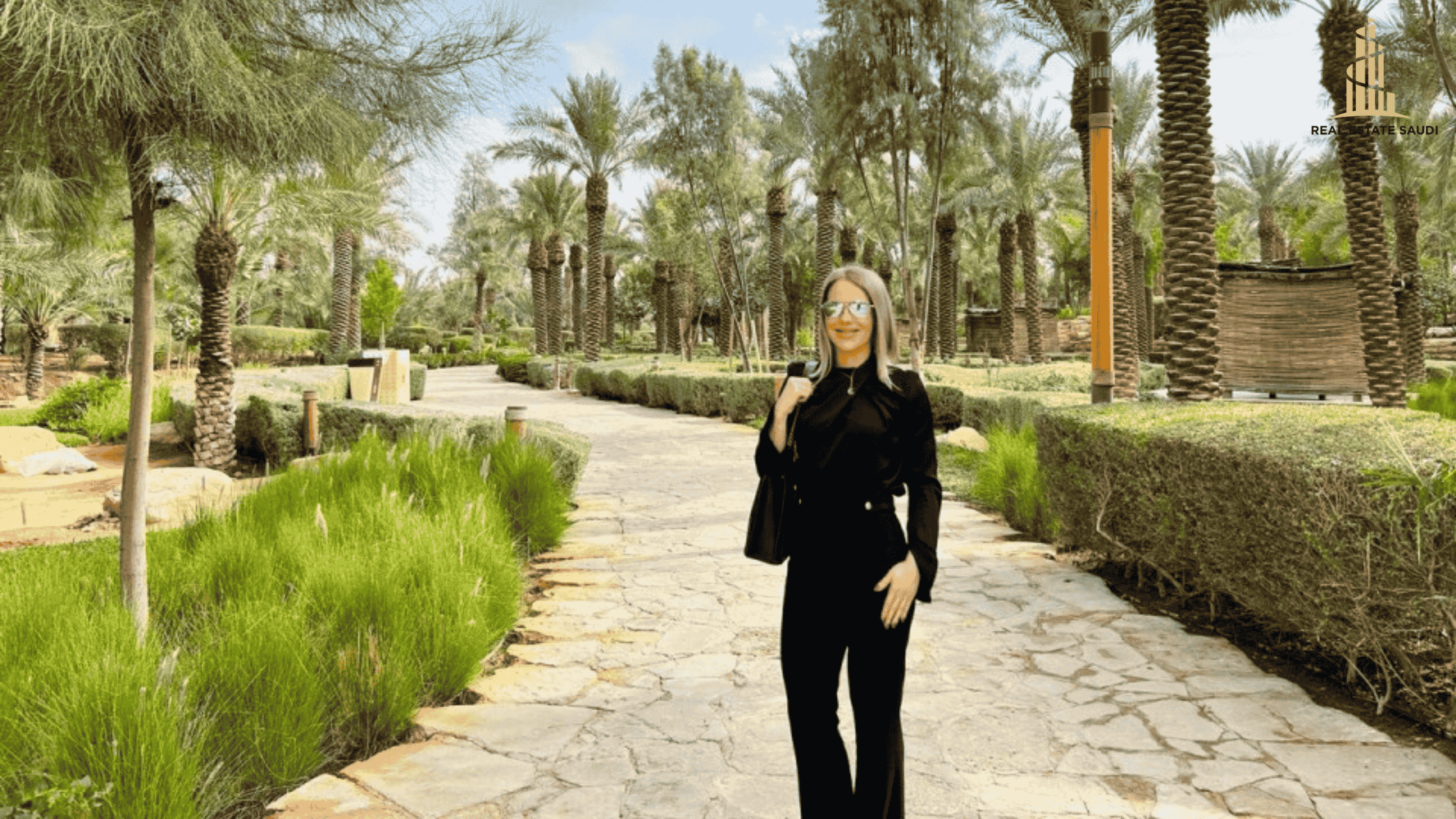The Role of Real Estate Laws in Regulating the Real Estate Market
As Saudi Arabia’s real estate sector experiences unprecedented growth driven by Vision 2030, establishing a strong legal foundation has become more crucial than ever. With increased investor interest, both local and international, the legal structure ensures fair practices, efficient transactions, and long-term market sustainability. Real estate law in Saudi Arabia now plays a central role in not only protecting the rights of developers, buyers, and tenants but also in shaping the future of real estate as a structured, safe, and transparent sector.
By clearly defining rights, obligations, and procedures, Saudi real estate laws offer a roadmap that enables smooth operations, protects against disputes, and aligns with global best practices. Whether you’re purchasing a residential villa, leasing commercial office space, or investing in a high-rise development, these laws guarantee a level playing field. The system fosters trust and minimizes risk, making Saudi Arabia an increasingly attractive destination for real estate investment.
“By clarifying rights and enforcing contracts, Saudi Arabia is creating a safer, more attractive real estate market for all.”
Real Estate Systems and Regulations in Saudi Arabia
Real Estate Ownership System
The property ownership law in KSA governs who can legally acquire real estate, the conditions attached to ownership, and the channels through which these transactions must occur. While Saudi nationals enjoy unrestricted ownership rights, foreigners and foreign-owned companies must meet specific regulatory criteria before acquiring property.
Key features of the ownership system include:
- Mandatory legal representation through licensed notaries during ownership transfers.
- All ownership documents must comply with local municipal zoning and urban development regulations.
- Properties located in strategic areas such as borders or military zones are restricted.
- Ownership records are stored in a centralized database for legal transparency.
This framework builds buyer confidence, enhances market professionalism, and prevents ownership fraud or overlapping claims.
Real Estate Title Registration System
Under Saudi title registration law, title registration is not just a procedural formality — it’s a legal necessity. Property ownership is only legally recognized if it’s registered through government-approved systems like the Najiz platform, administered by the Ministry of Justice.
Benefits include:
- Undeniable legal evidence of ownership
- Simplified access to resale, rental, and financing services
- Strengthened buyer and lender trust in transaction legitimacy
- Registered properties can be defended easily in legal disputes
Title registration protects the rights of all stakeholders and improves real estate liquidity by streamlining the resale process.
Regulations Governing Real Estate Development
To maintain safety, environmental integrity, and accountability, Saudi Arabia has laid out clear regulatory guidelines for developers. These rules ensure real estate projects meet national goals and community expectations.
Key requirements include:
- Mandatory licensing for all commercial and residential developers
- Compliance with environmental impact assessments and sustainable development codes
- Use of escrow accounts for off-plan sales to protect buyer funds
- Adherence to staged construction reporting and project milestones
“All buyer funds for off-plan housing must go through secure escrow accounts — not directly to the developer.”
This protects buyers from project delays or financial mismanagement while holding developers accountable.
Rental Laws and Real Estate Contracts
Saudi Arabia’s rental market has evolved through the implementation of the Ejar rental law platform, which aims to digitize, regulate, and secure all lease agreements.
Salient features of Ejar:
- Uniform digital rental contracts approved by the Ministry of Housing
- Mandated contract registration for all landlords and tenants
- Dispute resolution mechanisms integrated into the platform
- Enforcement of terms for rent increases, eviction timelines, and security deposits
This system reduces the prevalence of informal rental arrangements and ensures that tenants and landlords are both legally protected.
Laws Related to Real Estate Investment
To attract capital and improve ease of doing business, Saudi Arabia has implemented progressive laws that support real estate investors. These laws provide transparency, risk mitigation, and regulatory flexibility.
Investor-friendly legal elements include:
- Public-Private Partnership (PPP) legal frameworks for large-scale development
- Fast-tracked licensing for residential and commercial projects
- Legal tax exemptions for strategic sectors, especially in new economic zones
- Investor protection laws for project delays, fraud, or zoning inconsistencies
- Dedicated legal tracks for green building initiatives and smart city investments
Whether you’re developing retail complexes or acquiring land for urban housing, real estate law Saudi Arabia offers robust legal tools to protect your assets and maximize return on investment.
Foreign Property Ownership and Related Laws
The Kingdom’s stance on foreign investment real estate Saudi has evolved to encourage international participation while safeguarding national interests. Foreigners may now legally own property, subject to certain eligibility criteria and geographical limitations.
Conditions include:
- Possession of a valid residency permit and investment license
- Registration with a licensed Saudi legal entity or agency
- Property must not be located in prohibited areas, such as border regions or those with military sensitivity
- Additional approval may be required for large commercial developments
Foreign companies must be registered in Saudi Arabia and hold Ministry of Investment approvals to purchase or develop property.
“Expats may own apartments in Riyadh or Jeddah with the right permits — but not in border regions or military zones.”
This framework opens the market to global investors while maintaining national sovereignty and local market balance.
Real Estate Sale and Purchase Contracts in Saudi Arabia
Every real estate transaction in the Kingdom must be governed by a notarized agreement. These real estate contracts Saudi legal protocols establish enforceable, transparent, and equitable terms for buyers and sellers alike.
Elements of a legal real estate contract:
- Detailed description of the property, its location, and boundaries
- Full financial breakdown, including taxes, fees, and payment schedule
- Responsibilities of both parties during and after the transfer
- Inclusion of penalties, timelines, and warranty clauses
- Must be signed before a licensed notary and registered on platforms like Najiz
The Ministry of Justice regularly updates standard templates to reflect legal changes, and buyers are advised to seek legal counsel before finalizing deals.
Tip: Always review contracts with a certified lawyer to ensure clarity and compliance.
Real Estate Dispute Resolution and Litigation Mechanisms
Despite the presence of clear laws, disputes do occur — especially in high-value transactions or rental disagreements. Saudi Arabia has set up a comprehensive multi-level mechanism to resolve real estate conflicts efficiently.
Options for resolution include:
- Mediation: Ideal for minor contract misunderstandings
- Arbitration: Handled by Ministry-approved arbitrators, offering faster outcomes
- Judicial Courts: Specialized real estate divisions under the Ministry of Justice
- Electronic Litigation: Filing, tracking, and virtual hearings through digital portals
Real estate dispute resolution Saudi Arabia is designed to protect both domestic and international investors by ensuring:
- Evidence-based rulings using registered contracts
- Efficient timelines through electronic litigation
- Right to appeal and multilingual support in complex international cases
“Saudi Arabia’s dispute resolution system reduces legal risk and reinforces long-term investor trust.”
Real Estate Saudi Offers Legal Clarity and Trusted Investment Advice
As Saudi Arabia modernizes its real estate sector, expert guidance is key. Real Estate Saudi offers clients the legal clarity and market knowledge needed to make confident decisions in an evolving legal environment.
Our core legal services include:
- Pre-purchase due diligence and legal audits
- Contract drafting and legal review for sale, lease, and joint ventures
- Advice on foreign ownership clearance and licensing
- Title registration support on the Najiz platform
- Conflict resolution through legal intermediaries and arbitration
We collaborate with government-backed platforms like Ejar, Najiz, Sakani, and REDF, ensuring every step of your real estate journey is compliant, protected, and optimized for success.
Need expert help navigating Saudi Arabia’s real estate laws? Book your free consultation with Real Estate Saudi — and let us guide you through every legal step of your investment journey.
Certain FAQs
Can foreigners legally buy property in Saudi Arabia?
Yes, under specific regulations, foreigners can buy property in Saudi Arabia. According to foreign investment real estate Saudi laws, expats must hold a valid residency, obtain approval from the Ministry of Investment, and avoid restricted zones like border and military areas.
What is the Ejar platform and how does it help landlords and tenants?
The Ejar rental law platform is a government-regulated digital service that manages rental contracts. It ensures tenant and landlord rights, standardizes agreements, and helps resolve disputes, making the rental process safer and more transparent.
How do I register a property title in Saudi Arabia?
To register property legally, use the Najiz platform under Saudi title registration law. Title registration provides official proof of ownership, protects against fraud, and is required for resale, leasing, or legal proceedings.
What should a legal real estate contract include in Saudi Arabia?
A valid real estate contract Saudi legal must contain property details, purchase price, payment schedule, delivery terms, and penalties. It must be notarized and registered through platforms like Najiz to be legally enforceable.
What happens if a real estate dispute arises in Saudi Arabia?
Real estate dispute resolution Saudi Arabia includes mediation, arbitration, and judicial litigation. Specialized courts and digital systems like Najiz help resolve disputes efficiently using registered contracts and official documents.





